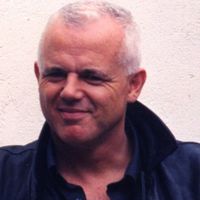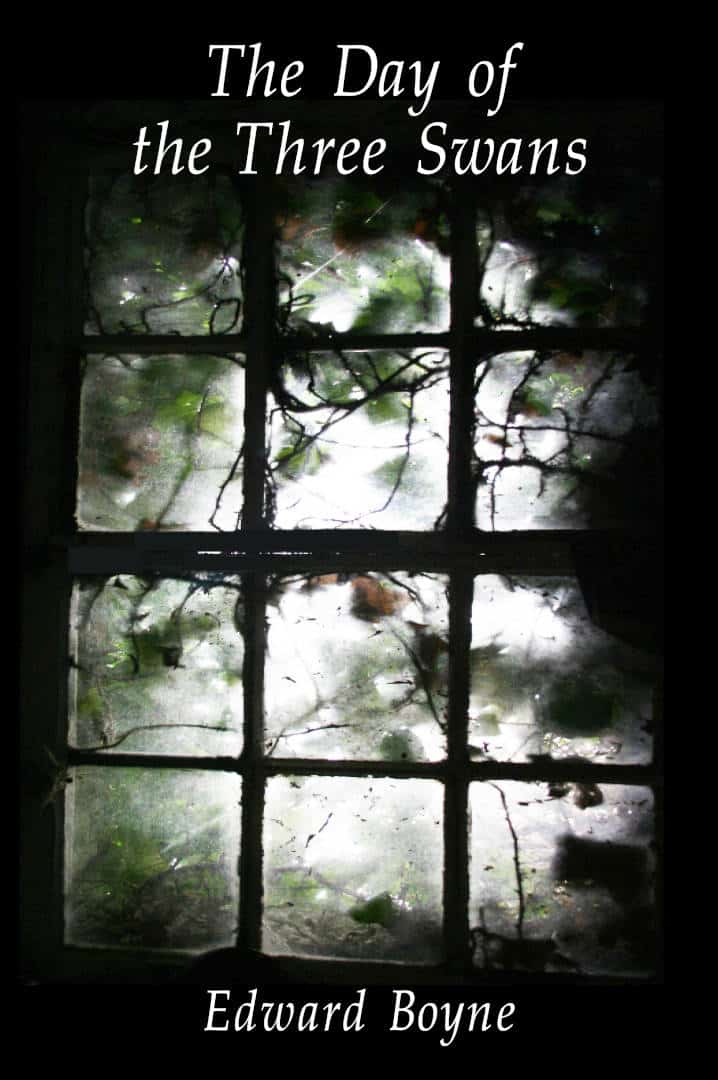Free shipping in Ireland over €25. Free worldwide shipping on orders over €50

EDWARD BOYNE is a poet and fiction writer. Born in Dublin, he has lived for many years in the west of Ireland. In recent years he has been twice short-listed for the Hennessy Award in both poetry and fiction and for the Francis McManus Award. He also works as a psychotherapist specializing in teaching and training.
There is a measured precision in the way Ed Boyne's poetry excavates the pathos associated with existence. Irish poetry needs to make room for this resonating voice.
— Gerard Reidy
Fire Water
The annals have it that on Ardee Street
a bonded warehouse caught fire one night.
It was 1875. My grandfather wasn’t born.
His father saw the smoke from darkest Bride Street.
Bottles blew up in the heat. Barrels disgorged
streams of burning liquor down Ardee Street.
It was as if the Gates of Paradise had opened.
The Liberties awash in 20-year-old best malt.
People jammed the storm-drains with old coats,
mattresses from prams, logs from Donoghue’s yard.
Carts, stranded, blocked all approaches to Ardee Street
in case helmeted help arrived too soon.
When the whiskey f lowed fire-free, mouths opened
showing blackened teeth, tongues lapped,
bony bodies prostrate faced the f low.
The party swam all night around Ardee Street.
Scores of the happy-pickled had to be dragged up
from gutter-heaven by the day shift of the DMP,
cursing and swearing. ‘For your own safety. For drunk
and disorderly. For breaching the Queen’s peace.’
The Day of the Three Swans
I dwelt in that other yellow place
for thirty wet years.
Locals called it ‘The Mental’
though I wasn’t from those parts,
nor were any of my people
who never found the gates.
There was a long wall, so tall
it was hard to tell what kind of day
had fallen in among us.
I’m certain the place
was warm in a foolish way.
I caught every smiling stranger
wandering the scrubbed halls
in black and white, like a negative
held up to the known light,
the way you can see what shapes
are there, and what they want,
and spot the shades
that colour takes away.
My favourite corridor
opened onto spring apples, f lower bunches,
frostless lake-water, tyre tracks.
Pill-trolleys-fronting-nurses
prowled the wards for mouths.
I stayed quiet when I heard
their apple voices tempt
the gathered snakes.
When I took their pearly offerings,
my bones weighed less than thought.
The day’s texture was stringy
as cabbage or a mother’s bacon.
No two days were different
except the day of the three swans.
Near my long silences, my walls of safety,
lay the banging of pans, steel tray collisions,
glass bottles chattering in crates,
the sound of cleaners humming to themselves
like traffic growing nearer.
The nurses graced us in shifts,
eloped at tea-time in long coats,
collected by a green bus that never washed,
its metal jaws held open as it left,
even when winter blew shivers off the lake.
I saw them through diesel smoke,
stretched across the long bus window,
like a queue that never moved,
looking back at us, not longingly,
gradually remote and homeward turned.
I met everything before it came,
and had it gone before it went.

ISBN: 978-1-907682-02-5 | Pages: 72 | Published: 2010
The poems in The Day of the Three Swans work with the sense of place, the shifting ground of emotion and the pressure of politics and external events. There are lost voices in these poems, voices ignored and obscured by history and the rough march of progress. Thematically there is grit, as well as tenderness, aggression sits side by side with empathy. The language veers easily from the tactile and immediate to the musicality and flow of insight and surprise, while the poems display a capacity to enact and reconcile complex emotions and dilemmas.
Submissions | FAQ | Cookies | Privacy Policy | Contact Us | Stockists
Doire is the Irish word for oak grove, translating into English as Derry.